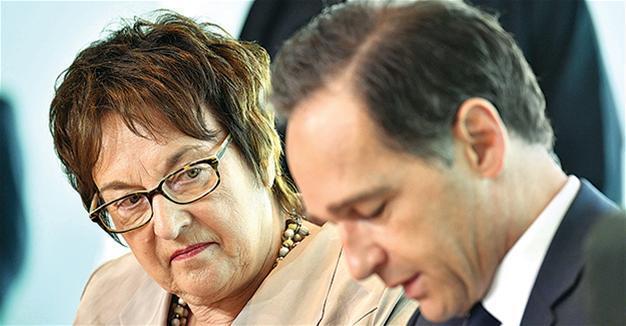Germany tightens rules to shield businesses from foreign takeovers
BERLIN-Reuters

Germany has approved rules to make it easier to block the sale of strategically important companies to investors from outside the European Union, prompted by concerns about China acquiring German expertise by that route.
The new regulations, which come amid fears of rising protectionism hurting world trade, allow the government to block takeovers if there is a risk of important know-how being lost abroad. The rules do not need parliamentary approval.
“We remain one of the most open economies in the world, but we also need to take fair competitive conditions into consideration,” Economy Minister Brigitte Zypries said in a statement on July 12.
“We owe that to our companies. They often compete with countries whose economies are not as open as ours,” she added.
The purchase of German robotics maker Kuka by Chinese company Midea last year fuelled concerns that China was gaining access to key technologies while shielding its own companies from foreign takeovers.
The new rules set out for the first time the criteria for blocking a deal, specifically jeopardizing critical infrastructure, such as hospitals and power grids.
Earlier this year, the German economics ministry withdrew approval for Fujian Grand Chip Investment Fund (FGC) to buy chip equipment maker Aixtron, citing security concerns.
Last month, European Union leaders agreed to consider screening investments by state-owned Chinese firms.
France, Germany and Italy have backed the idea of allowing the EU to block Chinese investments, partly because European companies are denied similar access in China.
However, some other EU countries, such as Sweden, have said this is heading in the direction of protectionism.
Under the new German rules, operators of infrastructure companies should be better protected from investors from outside the EU, if needed. In addition, the government will be able to take twice as long - four months - in reviewing deals.
The new rules will take effect once they are published in the Federal Gazette which includes all laws and decrees.
The move comes just days after G-20 world leaders agreed to fight protectionism including unfair trade practices at a summit hosted by Chancellor Angela Merkel. The agreement also, however, recognized the role of legitimate trade defense instruments.
British Prime Minister Theresa May has also said she plans to give government power to intervene in the takeover of critical infrastructure by a foreign buyer to enable it to protect national security.
 Germany has approved rules to make it easier to block the sale of strategically important companies to investors from outside the European Union, prompted by concerns about China acquiring German expertise by that route.
Germany has approved rules to make it easier to block the sale of strategically important companies to investors from outside the European Union, prompted by concerns about China acquiring German expertise by that route.